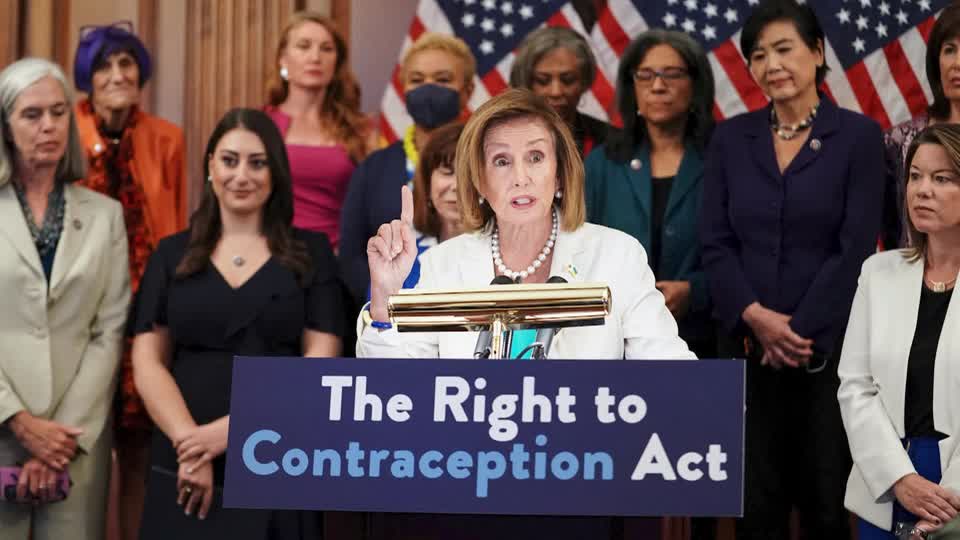
Willie R. Tubbs, FISM News
[elfsight_social_share_buttons id=”1″]
The U.S. House of Representatives has, of late, drawn criticism for becoming more performative than legislative, and a Thursday vote appeared to be the latest implication that the criticism is warranted. Despite the measure’s likely demise in the Senate and its existence seeming needless at present, House Democrats nonetheless passed a contraception bill largely along party lines.
In a 228-to-195 vote, 220 Democrats and eight Republicans passed the so-called Right to Contraception Act, which would create federal protections for healthcare providers who provide various forms of contraception, including birth control, and bar states from passing any laws restricting access to contraceptives.
This bill marks the third piece of legislation the House has passed in recent days in response to the Supreme Court’s decision to strike down Roe v. Wade.
Last week, the House passed a bill that would create a federal law ensuring nationwide abortion access, and earlier this week Democrats with the help of 47 Republicans passed a bill that would codify protections for same-sex marriages.
Both votes come after Justice Clarence Thomas, in a concurring opinion on the Dobbs decision, said the court should also reconsider its past rulings that guaranteed access to contraception and the right to gay marriage because they relied on the same legal arguments as Roe.
Republicans, for their part, have called the contraceptive and same-sex marriage bills unnecessary as there is no attempt by legislators to undo these laws. Democrats, however, seem set to use the opportunity to posture ahead of midterm elections by bringing the controversial topics to the forefront.
“With this passage, Democrats will make clear we will never quit in the fight against the outrageous right-wing assault on freedom,” Speaker of the House Nancy Pelosi (D-Calif.) said.
The White House has frequently expressed enthusiastic support of pro-abortion and contraception measures, and the president would presumably sign any of the aforementioned bills. However, the U.S. Senate, which is characterized by a 50-50 split between Republicans and Democrats, will almost certainly prevent President Joe Biden from having the chance.
The eight Republicans who voted in favor of Thursday’s bill were Reps. Liz Cheney of Wyoming, Brian Fitzpatrick of Pennsylvania, Anthony Gonzalez of Ohio, John Katko of New York, Adam Kinzinger of Illinois, Nancy Mace of South Carolina, Maria Elvira Salazar of Florida, and Fred Upton of Michigan.
“When I was 16, I was raped,” Mace tweeted. “I dropped out of high school shortly after. This trauma turned my life upside down. I cannot imagine a world where my daughter, or any other woman, doesn’t have access to birth control or other contraceptives.”
Many other Republicans have pointed out that the bill is a futile attempt to grandstand.
“First, this bill is completely unnecessary,” Rep. Kat Cammack (R-Fla.) said on the House floor. “In no way, shape or form is access to contraception limited or at risk of being limited.”
Cammack added, “The liberal majority is clearly trying to stoke fears and mislead the American people once again because in their minds stoking fear clearly is the only way that they can win.”
The pro-life group Susan B. Anthony Foundation, however, argued that the bill should be voted down due to the content of the bill itself saying that it is a veiled support of the pro-abortion movement.
In a letter to legislators on Tuesday, Susan B. Anthony President Marjorie Dannenfelser said the bill should more aptly be titled “the Payouts for Planned Parenthood Act.”
“This bill has less to do with the ability of individuals to obtain contraception and more to do with ensuring
federal funding for abortion providers who also happen to provide contraceptives,” Dannenfelser stated, adding that it “seeks to guarantee funding to abortion providers by barring federal and state governments from redirecting contraception funding to life-affirming health care providers.”
She also warned that the passing of the bill would “override state and federal freedom of conscience laws,” and force medical professionals to provide services that go against their sincerely held beliefs or be forced out of the medical practice.
The letter also says the language of the bill is “overbroad” and could provide a way for Democrats to avert the Dobbs ruling, as it potentially could “mandate access to abortion drugs.”
Sen. Maria Cantwell (D-Wash.) introduced corresponding legislation in the Senate, though a date to vote on the bill has not yet been set.
